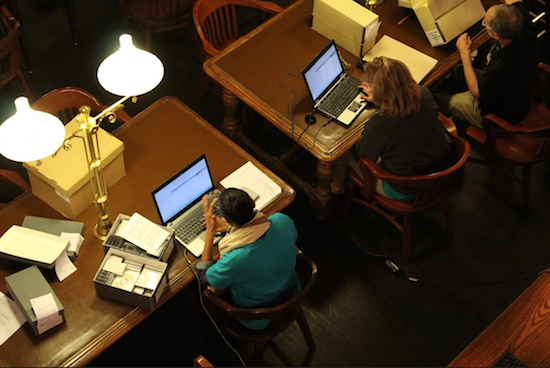Brooklyn Historical Society awarded national grant for oral history project

With funding from the National Historical Publications and Records Commission (NHPRC), Brooklyn Historical Society (BHS) has launched “Voices of Generations: Investigating Brooklyn’s Cultural Identity,” a project to digitize, process, catalogue and make more accessible nearly 500 interviews that are part of ten oral history collections documenting the histories of Brooklyn’s diverse ethnic and cultural communities. Some of these interviews date back to 1973, with narrators born as early as 1880, and have been previously unavailable to researchers, educators, students and the general public.
The ten collections provide a wealth of historical evidence about the lives of 20-Century and 21st-Century Brooklyn residents, and reveal how diverse communities sought to preserve vital social, political, religious and even culinary traditions while embracing new identities as Brooklynites, New Yorkers and Americans.
The NHPRC has awarded BHS a generous grant of up to $106,186 to support this project. “We’re very proud of our oral history collection at BHS,” said Deborah Schwartz, president of the Brooklyn Historical Society. “It includes some of the earliest oral histories in any collection, and we are thrilled to have it recognized by the NHPRC with this prestigious award.”

Brooklyn Heights
View MoreRead the Brooklyn Height's Press and Cobble Hill News. Find out more about Brooklyn Height's History here.